- News
- Reviews
- Bikes
- Components
- Bar tape & grips
- Bottom brackets
- Brake & gear cables
- Brake & STI levers
- Brake pads & spares
- Brakes
- Cassettes & freewheels
- Chains
- Chainsets & chainrings
- Derailleurs - front
- Derailleurs - rear
- Forks
- Gear levers & shifters
- Groupsets
- Handlebars & extensions
- Headsets
- Hubs
- Inner tubes
- Pedals
- Quick releases & skewers
- Saddles
- Seatposts
- Stems
- Wheels
- Tyres
- Tubeless valves
- Accessories
- Accessories - misc
- Computer mounts
- Bags
- Bar ends
- Bike bags & cases
- Bottle cages
- Bottles
- Cameras
- Car racks
- Child seats
- Computers
- Glasses
- GPS units
- Helmets
- Lights - front
- Lights - rear
- Lights - sets
- Locks
- Mirrors
- Mudguards
- Racks
- Pumps & CO2 inflators
- Puncture kits
- Reflectives
- Smart watches
- Stands and racks
- Trailers
- Clothing
- Health, fitness and nutrition
- Tools and workshop
- Miscellaneous
- Buyers Guides
- Features
- Forum
- Recommends
- Podcast
news
Bradley Wiggins says Lance Armstrong is a “good man” whose doping misdeeds are “disproportionate to what some people get away with” after Texan offers to pay for therapy; “When cyclists pay road tax they can use the road”; CX chaos + more on the live blog
SUMMARY
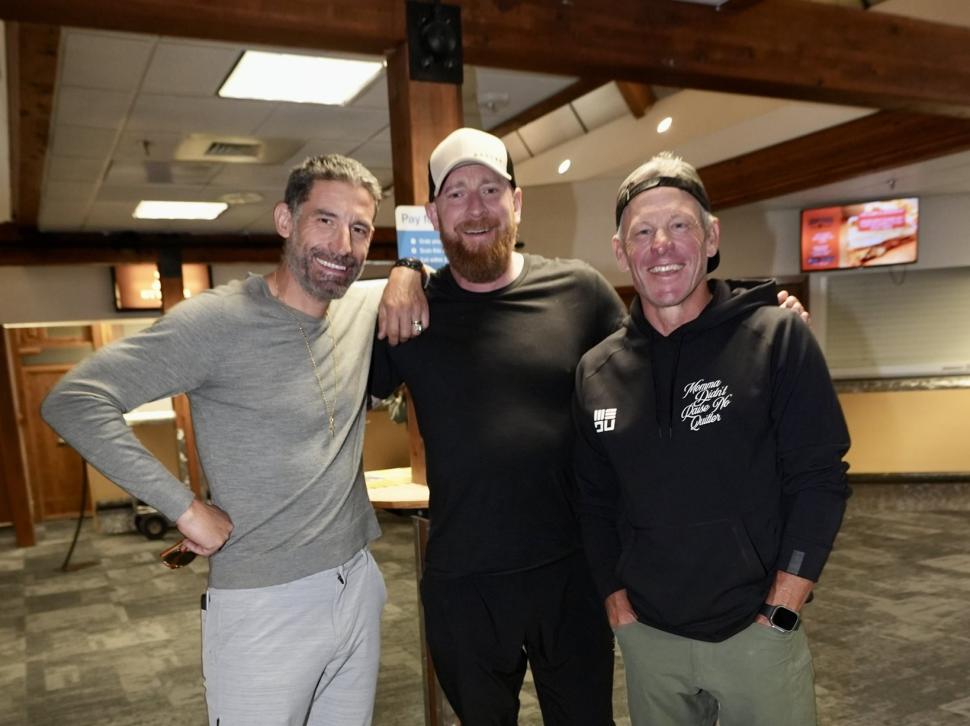 Bradley Wiggins, Lance Armstrong, and George Hincapie
Bradley Wiggins, Lance Armstrong, and George Hincapie02 December 2024, 14:21

“He’s a good man, he’s got a heart under there somewhere”: Bradley Wiggins reveals Lance Armstrong offered to pay for therapy sessions, as 2012 Tour de France winner says his “best years are yet to come”
Over a decade on from branding Lance Armstrong a “lying bastard” in the wake of his doping confession and lifetime ban from cycling, Bradley Wiggins has revealed that the controversial Texan has offered to pay for a week of special therapy in the US, saying that Armstrong is a “good man” who has a “heart under there somewhere”.
In an interview with Jake Humphrey’s High Performance Podcast, which saw him open up about his recent mental health and financial struggles, the 2012 Tour de France winner said he didn’t condone Armstrong’s doping, but argued the banned Texan’s misdeeds are “a bit disproportionate to what some people get away with in this world”.
Five-time Olympic gold medallist Wiggins joined Armstrong and his former Team Columbia colleague George Hincapie in Colorado during this year’s Tour de France to appear on Armstrong’s The Move podcast, two years after meeting up with the ex-US Postal duo, along with Mark Cavendish and Jan Ullrich, for a series of group rides and podcast recordings in Mallorca.
> “Back with the boys!” Sir Bradley Wiggins joins Lance Armstrong’s podcast during Tour de France
And speaking to Humphrey, Wiggins said that Armstrong – who was stripped of his seven Tour titles in 2012 following USADA’s doping investigation – has offered support and guidance during the retired British pro’s much-publicised struggles with mental health in recent years.
“Lance has helped me a lot in recent years, more so this year,” Wiggins said. “Talking about therapy, he wants to pay for me to go to this big place in Atlanta, where you stay for a week, they take your phone off you. Lance was going to fund that for me. He’s a good man.
“That’s not to condone what he did, we all know that, but it’s a bit disproportionate to what some people get away with in this world. He’s got a heart under there somewhere.
He’s also got an ego the size of a house. It’s why he won seven Tours… well he didn’t.”
The 44-year-old said he initially told Armstrong that “I don’t need help, but thanks for the offer”, but says he could yet accept it.
“That was five months ago, but I’m considering speaking to him,” he said. “I wanted to get back to a semblance of order, without talking to someone… Now I know what I want to talk to a therapist about.
“I’ve got much more of an idea of the behaviour patterns I’ve been left with, what drives me, and where do they come from. I didn’t just want to go in there and say ‘Sort me out’.”
Wiggins also told the podcast that the resentment he felt towards cycling following his retirement in 2016 stemmed from both his fractious relationship with his late father Garry, whose success as a track rider Bradley wished to emulate as a youngster, and the sexual abuse he allegedly suffered at the hands of former coach Stan Knight of the Archer Road club in west London.
“The biggest thing that has impacted me and the biggest thing I’ve come to terms with, the biggest thing that caused me the most amount of pain, was the fact I was sexually abused for three years by my first coach between the ages of 13 and 16,” the former Team Sky leader admitted.
“When I started to accept that, after I’d ignored it for 30 years, I realised that it was partially why I was successful. It was the greatest distraction I could have in those years.
“When I retired, I really resented cycling. I said a lot of times that I hated cycling because I blamed getting into cycling for the reason I met this guy. That was a real process for me. The five years of going through that.
“The interview I did with The Times meant four people came forward who were in the club at the same time, and that was a weight off my shoulders. There was an insinuation that I was lying about it, and that killed me.”
Discussing his recent financial troubles, which have led to him being declared bankrupt with unpaid debts of almost £2 million, Wiggins claims he was “fleeced left, right, and centre”.
“Money has never defined me or been my main priority. I wish it had been at times,” he said. “There were a lot of changes in tax laws and things, and I had professionals who were bending the books and stuff while I was still cycling. Up to 2012, they were exploiting my image and name.
“You get 10 years down the line and you realise you were a pawn in everyone’s game. There was a lot of professional negligence. It has been a learning curve.”
The build-up of a whole host of issues over the past decade, Wiggins says, culminated in a particularly dark period last year.
“There were some extreme moments, the last one was about a year ago – without going into too much detail, but I was in a very dark place, a very dark room, for many days,” he said.
“It was a hotel. My son [Ben], actually, was the one who intervened and really made me realise the self-destructive mode I was in, the damage I was doing to myself.”
However, Wiggins says he’s determined to deal with his issues, and is now back on his bike and attempting to take responsibility for his own life, saying he’s now in the “best place” he’s been his entire life.
“There always seemed to be something that was causing me issues,” he admitted. “I’ve realised now that there’s never going to be a clear path. There’s always going to be something happening.
“I was one of those people who wallowed in self-pity, especially after my career, asking why it always happened to me. I’ve realised that these things only become inter-related if you let them affect your behaviour.
“I was one of those people who would drink and I'd be late for something or not turn up for something and it would affect my behaviour.
“Now I’m in the best place I've been for 44 years of my life. That’s largely down to the fact I've been to the arse-end of the world. I’ve been in dark places at times, for various reasons.
“I’ve experienced extreme highs with my success, and other aspects of my life, but I’ve also experienced, like most of us, the other end of the spectrum.
“I’ve spent five years sorting it out in my mind. I’ve finally taken responsibility for my own life. I’m not in a position where I’m playing the blame game. I think my best years are yet to come.”
02 December 2024, 15:42
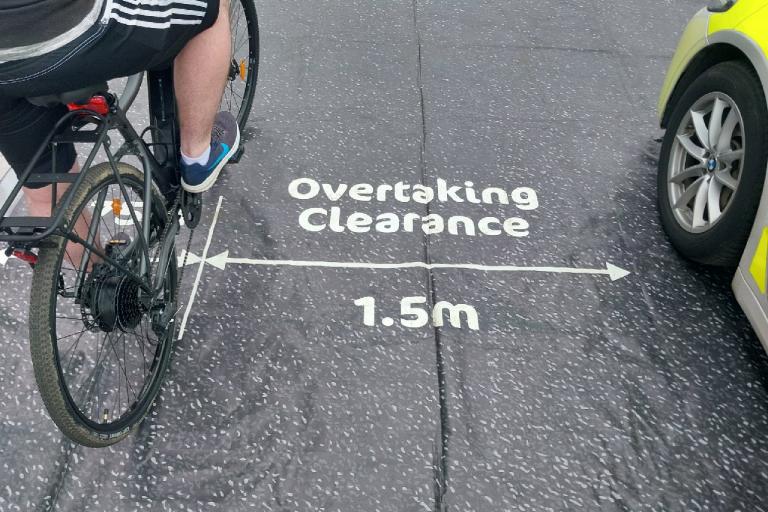
“When a cyclist pays insurance and road tax, then they have a right to use the road”: Facebook users respond to ‘undercover’ police close pass operation on dangerous driving by telling cyclists to “follow the rules of the road”
Yep, it’s time for that old chestnut, ‘police clampdown on instances of dangerous driving around cyclists sends social media addicts into frenzy’.
Last week, the BBC reported that West Yorkshire Police and Leeds City Council joined forces to carry out a close pass operation earlier this month, leading to ten drivers being stopped after they were caught dangerously overtaking undercover police officers riding bikes.
“The idea is to educate motorists on how to safely pass cyclists on our roads in the hope it will make our roads safer,” Sgt Andrew Sutcliffe said after the operation.
“All road users have the right to travel safely on West Yorkshire’s roads and cyclists are one of the most at risk groups, so it’s important that motorists give them enough space to prevent a collision or worse.”
Sounds like a good day’s work, especially when you consider that four cyclists were killed, and a further 164 seriously injured on West Yorkshire’s roads, in 2023.
However, unsurprisingly, it’s safe to say that the Facebook comments section for the story didn’t agree.
“Tell you what will make them safer,” said Pete, “If the cyclists used the cycle paths. Maybe have lights on their bikes and not ride around dressed in black on a night in the rain with no lights.
“Or they could try following the rules of the roads too, but that would be too difficult for them?”
Meanwhile, Andy added: “I’m a professional coach driver, motorist, motorcyclist, and cyclist, and other cyclists annoy me intensely when they’re holding up traffic that has no chance of passing them safely but they refuse to pull over and let the traffic pass, they display an arrogance that is hard to believe.
“I stop and let traffic pass when I’m cycling, so should they, there used to be a guy doing it every day on a major A road near me every morning, infuriating!!!”
“This is an absolute joke, are the police frightened of pulling cyclists now for nearly causing accidents for the car users?” asked Paula.
“Maybe should educate the cyclists on having lights and following the rules of the road!!” ventured Gladys.
Meanwhile, Robert said: “When a cycalist [sic] pays the same amount of insurance, road tax, and the cost it takes to get a license… then they have a right to use the road.”
Cheers, Robert.
And Lou concluded: “To be truly undercover they need to wear all black, have no lights, ride without holding the handlebars, wear ear buds, be texting, join moving traffic without checking, run red lights. and generally act like they own the road without paying road tax or insurance.
“Of course this doesn’t apply to all cyclists and I'm very grateful for those that are sensible, are visible and abide by the highway code but unfortunately that type of cyclist is in the minority in York.”
Bingo!
Thankfully, not everyone in the comments was so vehemently anti-cycling.
“Police go undercover to catch criminals sounds better,” said Robert.
“I and probably 99 per cent don’t go through red lights, but if you’re talking about the tiny percentage that do, they probably break laws all the time in their car too,” noted Michael.
“Some people just break laws, and laugh about it, but they eventually get caught or are involved in an accident. And road tax? I guess you now have that education from the rest of here?”
“Most drivers pass cyclists without the proper distance so they are failing the traffic regulations constantly,” said Omar. “But they are the ones who get offended by one cyclist they saw once who passed a red light. Their comments show their ignorance.”
And Dominik summed it all up nicely: “I'm just wowed at all the hate for alternative modes of transportation in this thread. After all, it’s the cars/drivers who are responsible for a) nearly all traffic deaths b) the public health crisis caused by sedentary lifestyle c) climate change d) respiratory diseases e) noise pollution.
“It is reasonable to make an effort protecting cyclists’ lives as they don’t have a literal tonne of steel around them.”
02 December 2024, 16:48

Zoe Bäckstedt “not thinking” about Paris-Roubaix yet – “otherwise I’ll start getting nervous” – as British star puts stop-start road season behind her with strong performance to secure “unexpected” first cyclocross podium of the season in Dublin
On Sunday, Lucinda Brand made light work of an unusually dry and fast Dublin course at the second round of this season’s UCI Cyclocross World Cup, engaging her smooth and consistent time trial mode to fend off the unlucky but dogged world champion Fem van Empel (who suffered a puncture earlier in the race) to take her fourth win of the winter.
And while there wasn’t much in the way of suspense when it came to who would take the win at the unusually mild Sport Ireland Campus, about a minute or so behind the rampaging Brand, Zoe Bäckstedt and Inge van der Heijden were locked in a hard-fought, nip and tuck tussle for third.
Deep into the last lap, on the steep, muddy hills that overlook the Ireland rugby team’s training pitches, Bäckstedt showcased her raw power to claw herself clear of her Dutch rival and secure the final spot on the podium, a repeat of last year’s Dublin result.
That third place – her first podium finish of the cyclocross season – was a welcome result for the 20-year-old British star, who endured a stop-start road campaign full of promising placings but also plagued by frustrating bouts of illness.
In April, the Canyon-Sram rider battled to a breakthrough 16th at Paris-Roubaix – the classic, of course, won by her father Magnus 20 years previously – before illness struck in the summer, ruling her out from May to September.
> “It’s Paris-Roubaix!” Zoe and Magnus Bäckstedt on “blood, mud, and tears”
That summer off didn’t dent her form, however, as Bäckstedt returned to take sixth in the time trial at the Tour de l’Ardèche, before winning the TT and finishing third overall at October’s Simac Ladies Tour (despite riding for almost the entire race with no teammates after her Canyon-Sram team succumbed to sickness and crashes).
A steady return to the ‘cross bike this month has led to consistent results – but Bäckstedt said after yesterday’s race in Dublin that she was surprised by her podium-contending form and her ability to ride with the likes of Brand and Van Empel from the start.
“It was definitely not what I expected,” the 20-year-old told road.cc. “If you go by my last race in Antwerp, where I was seventh, it was OK for me. I was still happy with the performance on the day.
“But today, third, and I really fought until the last metres of the race with whoever was around me and yeah, I’m very happy with it.”
Reflecting on her 2024 road season, she said: “I had a good start with 16th at Paris-Roubaix, so that was quite a good start to the season for me. And then I got sick, unfortunately, just after Ride London, which put me out of racing for three months.
“So it’s not been a regular road season, which is why I also ended so late, and I’m also coming into cyclocross a little bit later. I’m yet to have a smooth road season I’m racing, training, and resting according to plan.”
Asked about her plans for next year, especially at Paris-Roubaix – the race that suits her powerful characteristics the most – Bäckstedt was noncommittal.
“I have to think of the ‘cross season first,” she said. “I don’t think ahead that far. Otherwise I'm gonna start getting a little bit nervous for those races already.”
For now, her winter on the cyclocross bike is all about building form and confidence ahead of the world championships.
“But yeah, my form is still coming, it’s still coming into play. So I think a good training camp in the next week or so, and for the next race I’ll be better again,” she said.
“Worlds at the end of the season is always something I look to. I keep it in the back of my mind, but for now, after this the road season I had with some quite bad sickness, I have to just take it race by race, and I see how I do each day.”
02 December 2024, 18:03
“Theft has become legal”
02 December 2024, 09:08
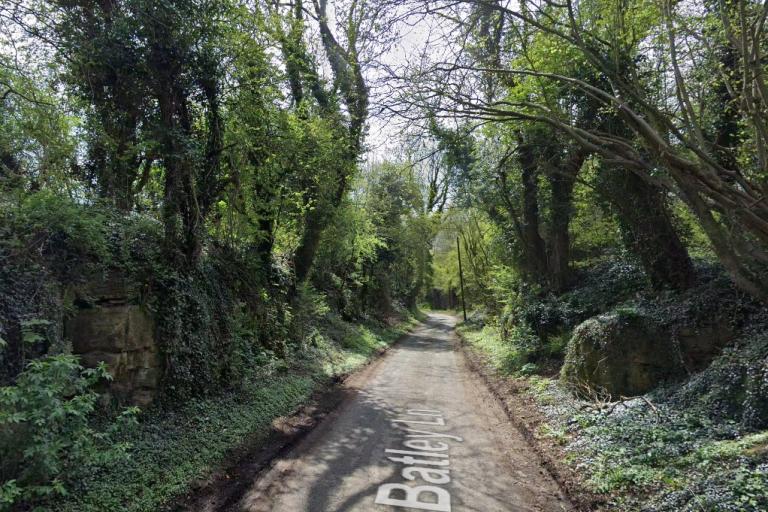
Cyclists slam “misleading” BBC “e-bike hit-and-run” headline – after SUV driver deliberately rams and kills rider
In the same week that new research carried out by road.cc contributor Laura Laker found that 70 per cent of police forces still refer to vehicles rather than their drivers when describing road traffic collisions, the BBC came under fire for publishing the headline ‘Police hunt mum’s killer after e-bike hit-and-run’ – despite the story in question concerning a SUV driver who deliberately rammed two people off their e-bikes, killing one.
Last week, the BBC reported that 25-year-old mother Alana Armstrong was killed while riding as a ‘passenger’ on an e-bike when she was deliberately struck by the driver of a 4X4, who had pursued them through the village of Pleasley, Derbyshire, on Tuesday evening.
The rider of the e-bike was also taken to hospital following the incident, where one of his legs had to be amputated below the knee.
Since then, police officers have said that a man and a woman have been arrested in connection with the incident on suspicion of murder.
However, while the details surrounding the shocking incident remain unclear, the BBC has been criticised for what cyclists have described as its “misleading” approach to the story.
One Reddit user pointed out that the BBC’s original headline for the story was ‘Police hunt mum’s killer after e-bike hit-and-run’, which they claimed led them to believe that a “pedestrian hit by an e-bike had died”.
“Rather surprised to learn in the article that the victim was on the e-bike and had been deliberately hit by the driver of an SUV,” the user said.
The BBC has since changed the headline of the original article to ‘Hit-and-run murder probe after mum rammed off e-bike’. Nevertheless, the follow-up story, focusing on the murder investigation, still features the headline: ‘Murder probe after woman killed in e-bike “ramming”’.
“It’s an incredibly poor headline,” another Reddit user said. “The SUV chased two cyclists and hit them on purpose, according to the article. I don’t think ‘e-bike hit and run’ really captures that reality.
“It is just sort of incredibly vague, doesn’t tell you much, and what it does imply is that there was a hit and run accident, and the perpetrator was on an e-bike.”
One user also described the follow-up headline as “not quite as bad as before but again can easily be read as if she was rammed by an e-bike.”
“Anything to make cars look good. They know most people only read the headline and fill in the gaps,” another said.
“The focus of the article definitely does seem to be on the e-bike rather than the victims,” added a reader.
(Derbyshire Police)
“No no, it was the e-bike’s fault,” noted one user, sarcastically.
“Drivers don’t go round ramming their cars into people for no reason, it must be because they were on an e-bike and were speeding or something and even if they weren’t, it was the car that did the ramming, not the poor working-class driver who pays road tax.
“Anyway, they were probably all dressed in black.”
Meanwhile, another user said: “I’m guessing it’s because e-bikes are a hot topic at the moment, so they’re just determined to get ‘e-bike’ into the headline.
“But it’s weird how they keep on not mentioning the vehicle which actually did the ramming.”
This isn’t the first time, of course, that the BBC have been criticised for their use of language concerning road traffic collisions.
In November 2022, the broadcaster defended its use of the term “accident” when describing road traffic collisions, telling one Radio 4 listener that “we try to use language that ordinary people use, not the language contained in reports and documents”.
Cyclist Toby Edwards complained to the BBC after an 11am news bulletin on 28 September announced that “figures show that 39 people died after road accidents involving the police between 2021 and 2022”.
Edwards asked the BBC’s Complaints Team if the broadcaster was “sure that all of these collisions were indeed accidents”, or whether “the term ‘accident’ was used mistakenly instead of saying ‘crashes’ or ‘collisions’?”
The BBC said in response: “We’ve discussed your concerns with senior staff in BBC News and, although we take your point that ‘collision’ may have been a preferable word, our job is to write radio scripts that are relatable and understandable, and we try to use language that ordinary people use, not the language contained in reports and documents.”
And in September, the corporation apologised for its use of the word ‘accident’ in a headline and story concerning the deaths of US ice hockey star Johnny Gaudreau and his brother Matthew, after they were killed while cycling by a suspected drink driver who allegedly told police at the scene that he had consumed “five to six beers” before the fatal crash.
Responding to a complaint from a reader, who described the vocabulary used in the article as “biased and incorrect”, the broadcaster said that it was “sorry if you did not appreciate how we chose to cover this issue initially”, noting that the headline had since been changed to clarify that the Gaudreau brothers had been killed in a “bike and car crash”, while removing all references to an ‘accident’.
02 December 2024, 13:58
Weird cyclocross rules, #34: Please refrain from eating the riders
Please refrain from eating the riders #Couchpeloton
— Rob Colley (@welshracer.bsky.social) December 1, 2024 at 3:23 PM
Poor Thibau, first he stacks it on the beams, then a hungry steward sets upon him in the pits. The lad had no luck in Dublin…
02 December 2024, 15:17
David Millar’s cycling clothing brand CHPT3 enters liquidation and ceases trading immediately
Just three months on from the launch of the brand’s new Transit commuter cycling shoe, CHPT3, the cycling clothing brand founded by former pro racer David Millar, has entered liquidation and ceased trading with immediate effect.
Read more: > David Millar’s cycling clothing brand CHPT3 enters liquidation and ceases trading immediately
02 December 2024, 12:58
Cav and Froomey’s Adventures Abroad continue
Get this pair their own travel show now…
After enjoying a romantic sunset cruise in Miami earlier this month, newly retired Mark Cavendish has met up once again with his old Team Sky mucker Chris Froome, this time in Taiwan, where the fast-talking sprinter/spindly climber odd couple have been sampling the local culture, riding their bikes, and ‘enjoying’ a rollercoaster or two:
‘Cav and Froomey Ride Around the World’ – now that has a good (if rather niche) ring to it for a 30-minute matey travel programme, doesn’t it?
Come on Channel 5, surely a slot has opened up after the whole Greg ‘Gregg’ Wallace thing last week? You have my number…
02 December 2024, 12:40
“It’s difficult to ride with one and a half shoes!” Michael Vanthourenhout overcomes broken shoe to win enthralling Dublin cyclocross World Cup round, after lightning-fast “triathlon-style” shoe change
He may be the current leader of the UCI Cyclocross World Cup standings, but if this whole riding around a muddy field and bunny-hopping barriers thing doesn’t work out, Michael Vanthourenhout could always have a career in triathlon to fall back on, judging by his lightning-fast ability to change his shoes in stressful conditions.
During an enthralling, closely fought men’s elite race in Dublin, the 31-year-old Belgian took advantage of his Pauwels Sauzen-Bingoal teammate Eli Iserbyt’s slip on a steep uphill section towards the end of the final lap to launch a blistering late, late attack to just hold off the group, led home by Toon Aerts (his first World Cup podium since his two-year ban for letrozole, which he claims came from contaminated milk) and Spaniard Felipe Orts.
But, after Thibau Nys’ rendezvous with the beams, Vanthourenhout’s second victory of the season wasn’t without its own drama, after he nicked a post during the third lap, breaking his shoe.
With the BOA dial seen flapping as he fought to remain in contention, the Belgian then executed a perfectly seamless triathlon-style shoe change in the pits to stay in the lead group, allowing him to bide his time before his last-gasp winning move.
Shoe change for Vanthourenhout 👟🔁
He is back up with the leading group now and straight to the front! The group start to stretch on the climb! #CXWorldCup #FLCS pic.twitter.com/miQ824mE1C
— UCI Cyclocross (@UCI_CX) December 1, 2024
“I rode against the pole and the shoe was open,” the new World Cup leader told your resident live blogger after the race.
“But yeah, it was good I didn’t lose the race with that shoe. The shoe was broken for one lap, I think, so it's very difficult to ride with one and a half shoes! It was tricky to jump over the barriers with one shoe.”
Reflecting on what many described as the best race of the year, Vanthourenhout added: “I saw Nys’ crash in the beginning, but yeah, I rode my own race and I knew I was very good, so I tried to wait until the end and I think it was a good decision.
“I think Eli made a little mistake at the end in the hilly part of the race. I had a bit of luck, but if you are good to have luck on your side.
“So I think I was the strongest today, but it’s always difficult to win a race.”
Especially if you only have one shoe, eh Michael?
02 December 2024, 10:58
“Someone rode right over my left ankle”: Chaos at the Dublin cyclocross as footage shows spectacular plank pile-up that ruined Thibau Nys’ chances
Moderately warm temperatures (for December), not too much mud, dazzling sunshine, some spectacular racing… oh, and a delicious (and free) burger from the event’s catering team – it’s fair to say I enjoyed the UCI Cyclocross World Cup’s annual pilgrimage to Dublin yesterday.
However, while dashing across the course at the start of the elite men’s race – won in scintillating, last-ditch fashion by a shoe changing Michael Vanthourenhout (more on that in a moment) – I unfortunately missed, by mere seconds, arguably the most dramatic moment of the entire day.
At the plank section on the opening lap, a miscue by leader Michal Boros as he attempted to bunny-hop the beams saw him hit the grass face first.
Behind him, as he stumbled about looking for his bike, chaos ensued, as eventual third place finisher Felipe Orts just about managed to keep it upright after colliding with Boros’ abandoned machine, before Thibau Nys lost control and was sent sprawling
The 22-year-old Lidl-Trek star was then hit from behind at speed by David Menut, while another rider carried on over his ankle, causing the young Belgian to howl out in pain.
But, while I wasn’t able to get any close-up footage of the first lap drama, luckily former road.cc tech writer Dave Arthur was on the spot to capture all the chaos:
“My ‘cross was already over after two minutes,” Nys, widely tipped to be one of cycling’s next big stars after a stunning breakthrough season on the road, told VTM Nieuws.
“They fell right in front of me. I was able to avoid those guys and fell myself. But when I was on the ground someone rode right over my left ankle. When I jumped back on the bike, I couldn’t put any force on my ankle.”
The 22-year-old gamely carried on despite his injuries, cutting through the field seemingly effortlessly, before eventually pulling the pin on the fifth lap.
“I tried to make it a good training race, but it went wrong,” the European champion said. “The only positive thing is that the damage to the ankle will be relatively limited since I was still able to ride.”
02 December 2024, 13:27
Is this the weird, ugly future of Tour de France winning tech?
More from that, ahem, intriguing new Colnago bike leak:
> “Even uglier than a Bianchi Oltre”: Leaked images rumoured to be unreleased Colnago aero bike split opinion
02 December 2024, 11:45
Spot the difference
I couldn’t resist…
Spot the difference.
— Jason (@jasoneccles.com) December 1, 2024 at 10:13 PM
And it turns out quite a few people have linked under-investigation Manchester City’s recent sharp downturn in form with a certain brash Texan.
“I must say watching Man City struggle is right up there with Lance Armstrong going on the Oprah Winfrey show and admitting he cheated his way to seven Tour de France wins,” Gaz wrote on (not so) Bluesky.
Who knows, maybe City will get away with their alleged 115 financial breaches on a technicality (the money was for saddle sores, I promise!), disappear from the sport for a bit, before – angered by Brighton challenging for the Premier League in 2027 – returning for an ill-fated crack at glory, eventually forcing David Silva to come clean to the FA about his personal sponsorship deal, triggering a tsunami of confessions and the club’s eventual total disgrace, forcing Pep to appear on a weird space-themed reality show?
What, too far?
02 December 2024, 10:52
“Has to be fake”: Cycling world reacts with horror to leaked images of new Colnago
Our tech team will have the full scoop on this later this morning, but I couldn’t carry on with the live blog until I mentioned the, ahem, intriguing new Colnago road bike design that was leaked across the internet over the weekend and is apparently set to be released next Monday:
Hmmm…
Let’s just say the cycling world is a tad divided over the… shall we say, striking new design.
“It’s an S5 with a stupid seat post. Has to be fake,” said Richard on Instagram.
“Please no,” said what I assume to be a Colnago traditionalist.
“Not a looker is it,” noted one user.
Meanwhile, our own Jo Burt asked: “Is it aiming to grab the ugliest road bike award off Pinarello? It looks like someone typed ‘make me a bike out of all the ugliest bits of our competitors’ bikes’ into AI.”
We should definitely try that before today’s live blog is finished…
02 December 2024, 11:56
More developments in the ongoing Strava/speeding cyclists/Royal Parks saga, as ride-sharing app claims Royal Parks “have directly acknowledged Strava is not root cause of issues”
02 December 2024, 09:58
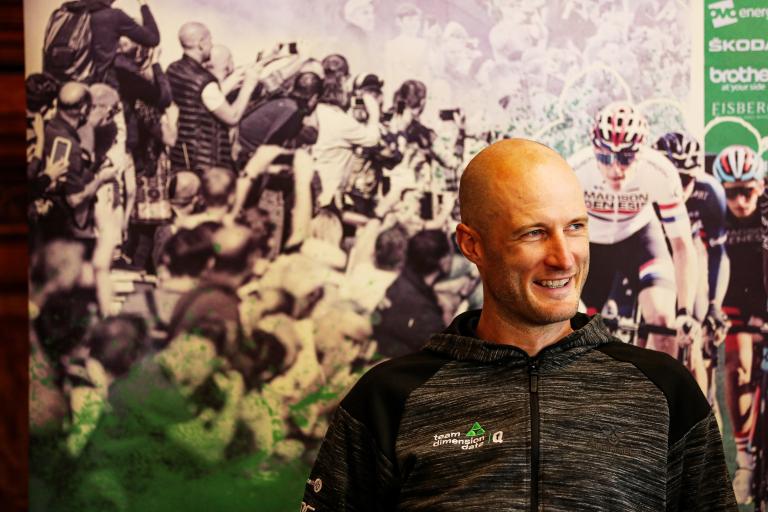
“It’s an opportunity to be part of a culture that celebrates growth, resilience, and meaningful results”: Steve Cummings joins Jayco AlUla as sports director after fractious Ineos departure
Less than a month after officially leaving the Ineos Grenadiers under a cloud, following a fractious, turbulent season, Steve Cummings is back in the WorldTour, after being confirmed as Jayco AlUla’s newest sports director.
In a statement issued by the Australian team, the double Tour de France stage winner and former British champion said the move offered him the “opportunity to be part of a culture that celebrates growth, resilience, and meaningful results” – a culture, one could infer from that statement, perhaps hasn’t existed at controversy-marred Ineos for a while.
“I’m really excited to be joining Team Jayco AlUla. This team has a strong reputation for its professionalism, and commitment to success, which aligns with my own values and experiences in sport,” the 43-year-old said.
“I’m looking forward to contributing to its ongoing success, helping all my teammates reach their full potential.
“For me, this is more than just joining a team – it’s an opportunity to be part of a culture that celebrates growth, resilience, and meaningful results.
“Naturally through having a long career within cycling, on and off the bike, I already know a lot of team members and I can’t wait to roll up my sleeves and get started with them.”
Cummings wins the British nationals in 2017 (SWPix.com)
“We are delighted to be welcoming Steve onto the team in 2025. His personality and professionalism is something that we believe will fit very well within our culture,” Jayco’s general manager Brent Copeland added.
“Steve has such a wide skill set and is a very experienced sport director having of course experienced first-hand what it means to be a rider himself, having won at the highest level during his time as a pro rider.
“I was truly impressed by Steve’s attention to detail and visionary approach during our first conversation about the team. I immediately felt that he would bring a dynamic energy that we would all benefit from.”
At the start of November, after months of speculation about his future at Ineos, Cummings confirmed his departure as director of racing at the British team.
The 2016 Tour of Britain winner, who was promoted to a senior management role at Ineos at the end of 2023, after three years in the team car, was last seen at a race in June at the Critérium du Dauphiné (where he had an infamous and tetchy stand-off with our YouTuber-in-chief Jamie over us capturing footage of the new Pinarello Dogma).
He was then left out of the team’s Tour de France DS line-up, amid reports of internal tension, especially with star rider Tom Pidcock, and didn’t appear in the Ineos team car, or in any capacity at any race, for the remainder of this season.
However, despite his prolonged absence, there was little official confirmation about Cummings’ position within the team, and he was notably left out of October’s press release detailing the latest structural and staff changes at the squad, which announced the arrival of his former Sky teammate Kurt-Asle Arvesen as a sport director.
But in a statement on LinkedIn, Cummings finally set the record straight, stating that he was ready for a “new challenge” – which has now been confirmed as taking the wheel of Jayco AlUla’s team car.
“I’m aware there has been some speculation so I just wanted to clarify my situation,” the 43-year-old posted.
“I’ve reached the decision to step away from Ineos. This may seem like a big move, but I’m now ready to begin a new phase of my career. It’s been a privilege to work with such a talented group of riders and staff for the last four years. I’d really like to take this opportunity to thank them for their support and dedication.
“I’ve always enjoyed and thrived working in a high-performance environment and I will continue to have significant involvement in the sport. My focus is now on a new challenge within professional cycling.”
Cummings’ prolonged exit marked the culmination of a turbulent year for the Ineos Grenadiers – the least successful in the team’s 15-year history – which saw departing figures such as Dan Bigham and Ethan Hayter publicly criticise the team and the approach of its management, while Tom Pidcock also questioned Cummings’ input at the Tour, before claiming that Ineos “don’t help me to perform at my best” amid a number of internal issues.
Pidcock was then dramatically dropped at the last minute from their Il Lombardia line-up – a decision the team’s higher ups confirmed was not based on form – kicking off what has become a protracted and complicated transfer saga.
(Which, despite seemingly being settled with Pidcock set to stay at Ineos could, if murmurings at the Dublin cyclocross World Cup are to be believed, still lead to the double Olympic champion joining Q36.5 before the ‘cross season is over. Watch this space…)
02 December 2024, 10:33
How to ruin your new sports director announcement in one easy post
Cheers Jayco, that’s all the goodwill for Cummings’ new move suddenly evaporated across the country.
Sorry, Steve…
02 December 2024, 16:19
Two live blogs, Jeremy?! The consumerist craziness continues… It’s ‘Cyber Monday’ (which sounds like a terrible Terminator sequel, if you ask me)
After obtaining a PhD, lecturing, and hosting a history podcast at Queen’s University Belfast, Ryan joined road.cc in December 2021 and since then has kept the site’s readers and listeners informed and enthralled (well at least occasionally) on news, the live blog, and the road.cc Podcast. After boarding a wrong bus at the world championships and ruining a good pair of jeans at the cyclocross, he now serves as road.cc’s senior news writer. Before his foray into cycling journalism, he wallowed in the equally pitiless world of academia, where he wrote a book about Victorian politics and droned on about cycling and bikes to classes of bored students (while taking every chance he could get to talk about cycling in print or on the radio). He can be found riding his bike very slowly around the narrow, scenic country lanes of Co. Down.
Latest Comments
- OldRidgeback 58 min 18 sec ago
I bought my first MTB at Brixton Cycles decades ago and it's still in use as my hack. I've also bought bikes from there for my sons. I've had...
- Eton Rifle 1 hour 1 min ago
"Pleading for leniency, the barrister had asked the court to treat it as an aberration by a young woman" She's 34 FFS!
- chrisonabike 1 hour 22 min ago
So what you're saying is the "baseline" would move from "lit up like a Christmas tree" to "like a chameleon at a rave" * ... and it would have...
- Oldfatgit 2 hours 18 min ago
Thank you for asking Aidan, much appreciated....
- ktache 11 hours 17 min ago
And I liked endura too. Got a nice long sleeve mostly merino long sleeve a little while back, in orange.
- matthewn5 11 hours 45 min ago
No, the Ebay lights have been around for several years, this Lezyne light just appeared.
- chrisonabike 12 hours 1 min ago
They shouldn't worry - the second part of the "tariff" refrain is "they can make it in US and they'll do very well".
- Mr Blackbird 12 hours 33 min ago
"At the going down of the sun, it will get in our eyes and cause us to crash into things."
- chrisonabike 17 hours 37 min ago
Indeed - but again these are perhaps questions we should keep asking. Even if the immediate answer is "well we are where we are" or "how on earth...
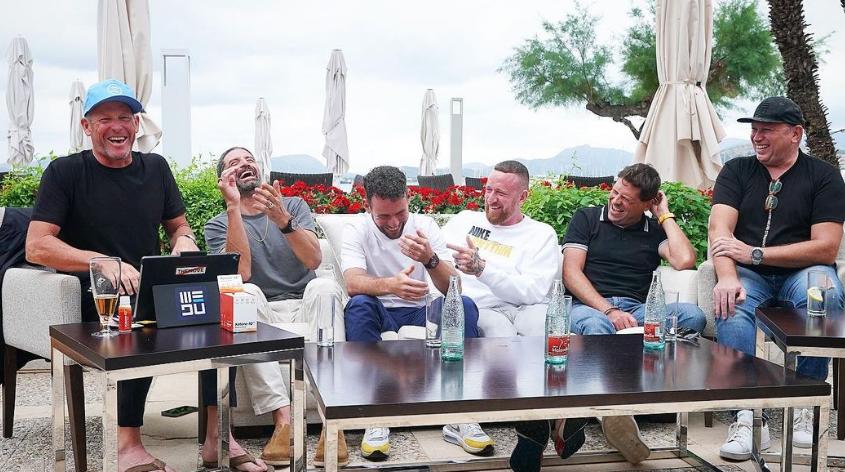
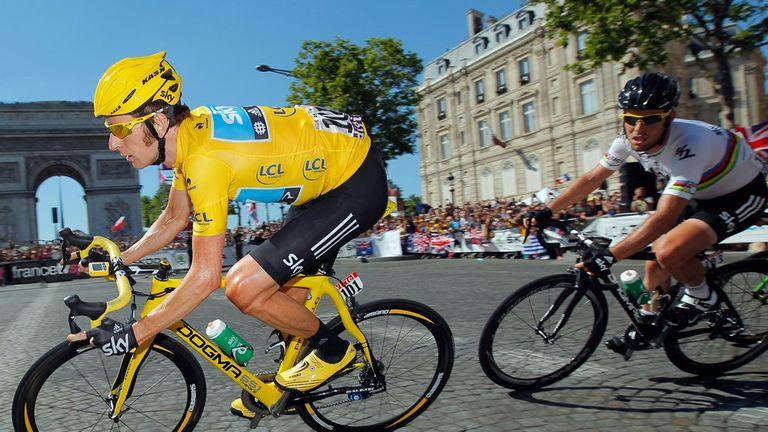
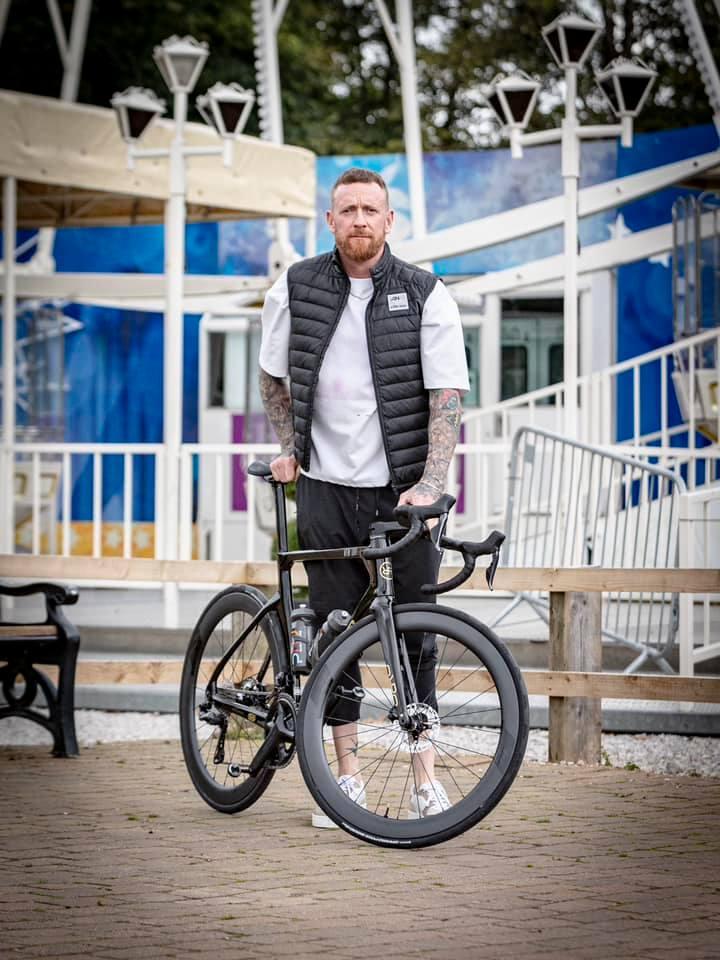
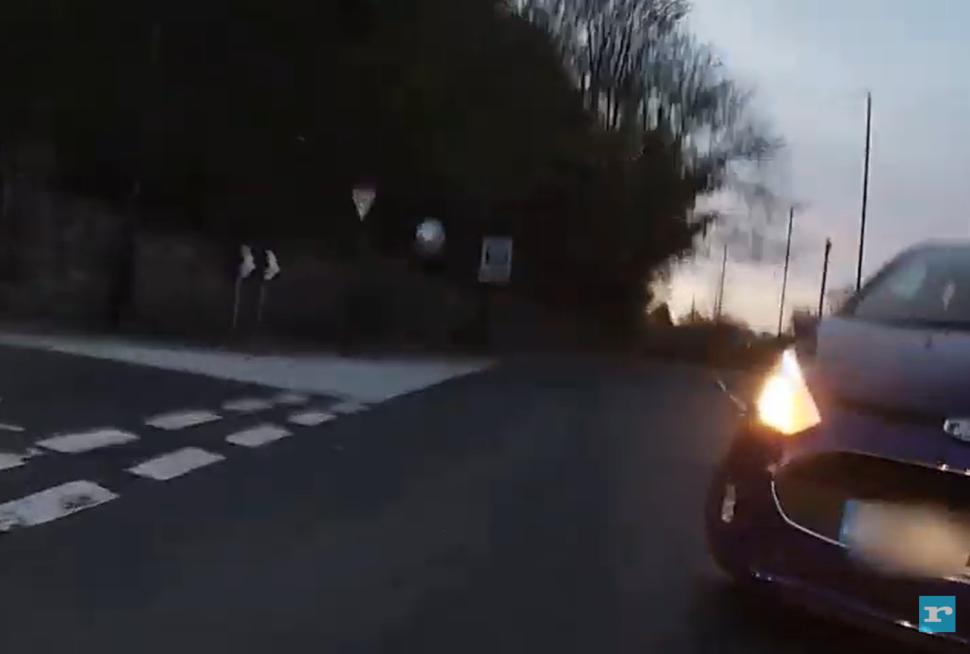
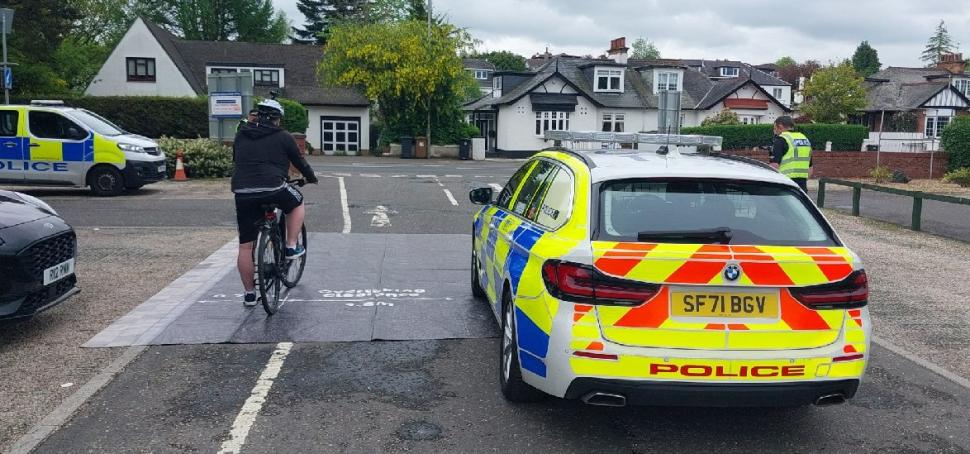

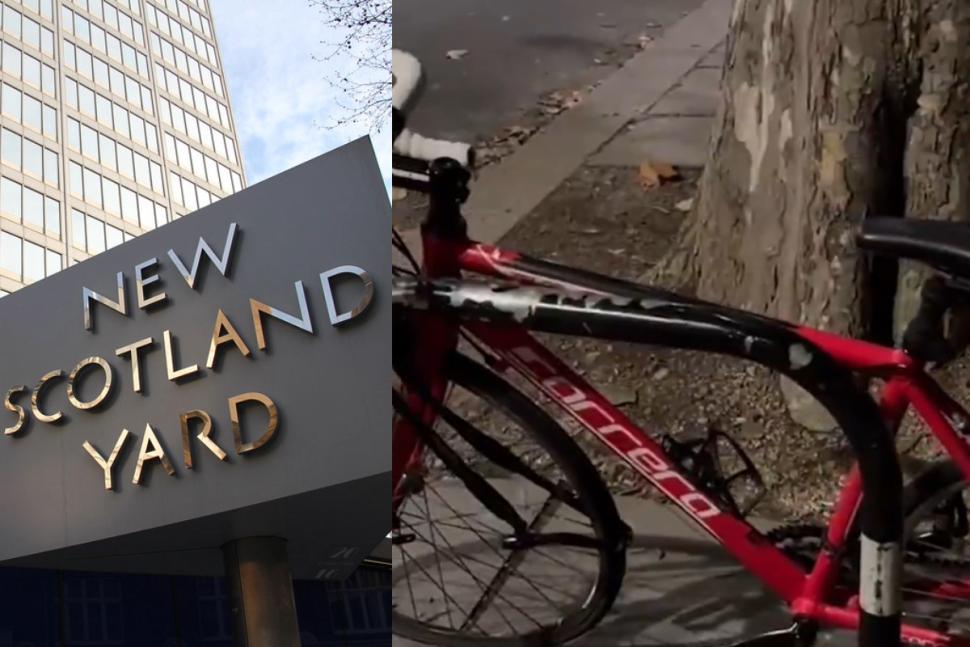
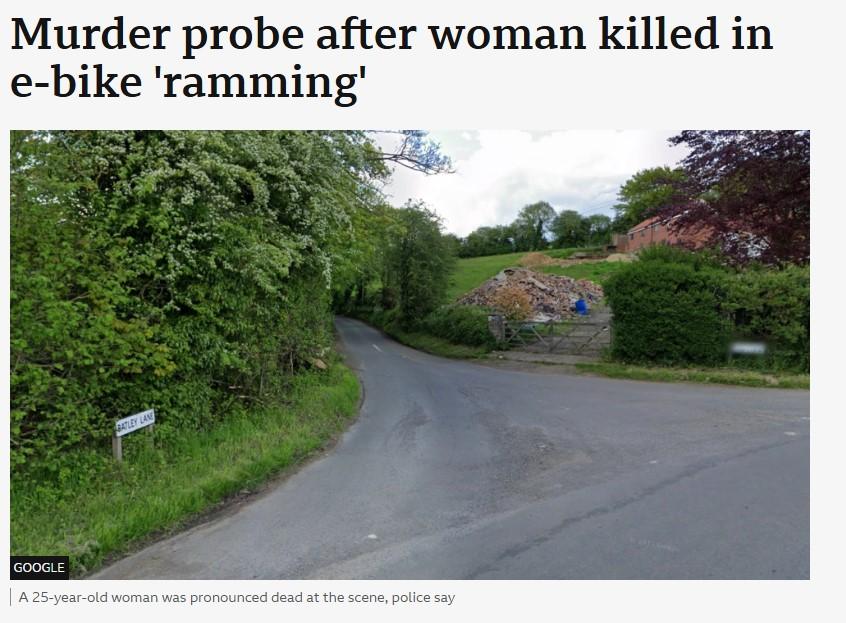


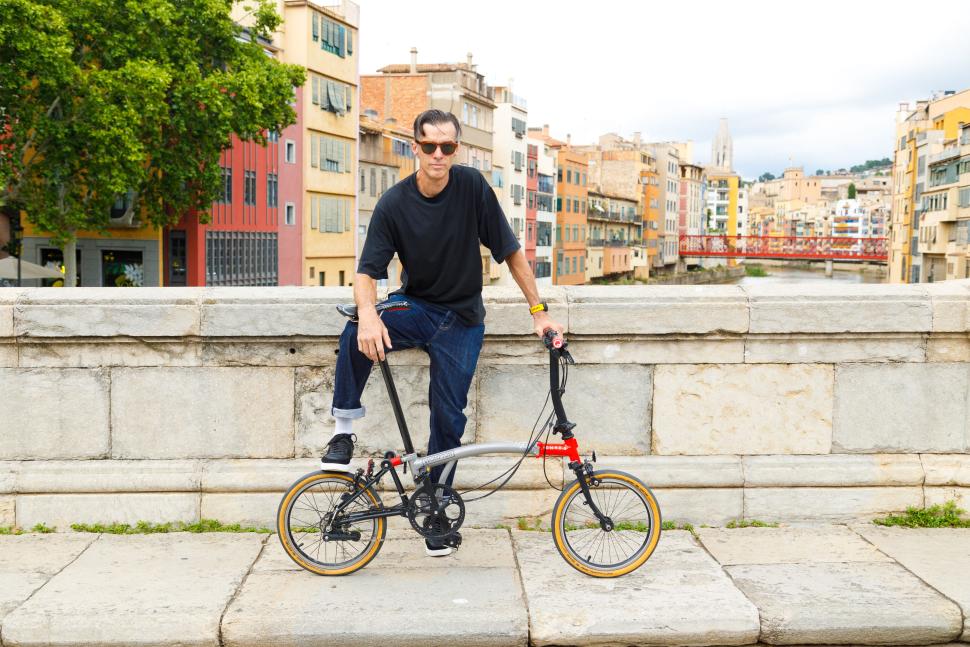
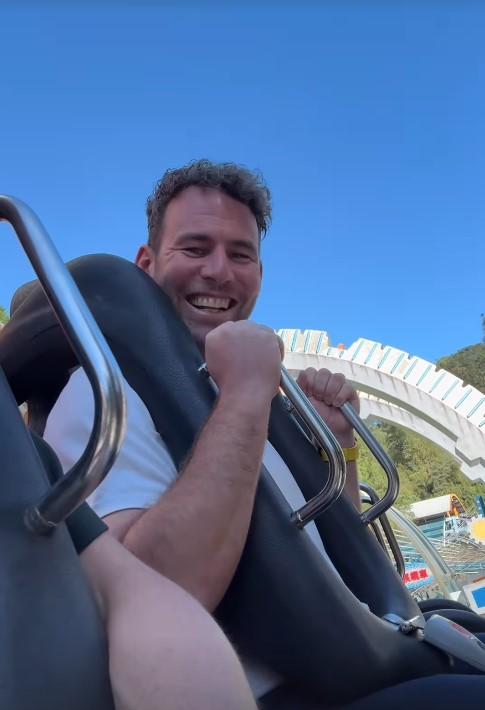
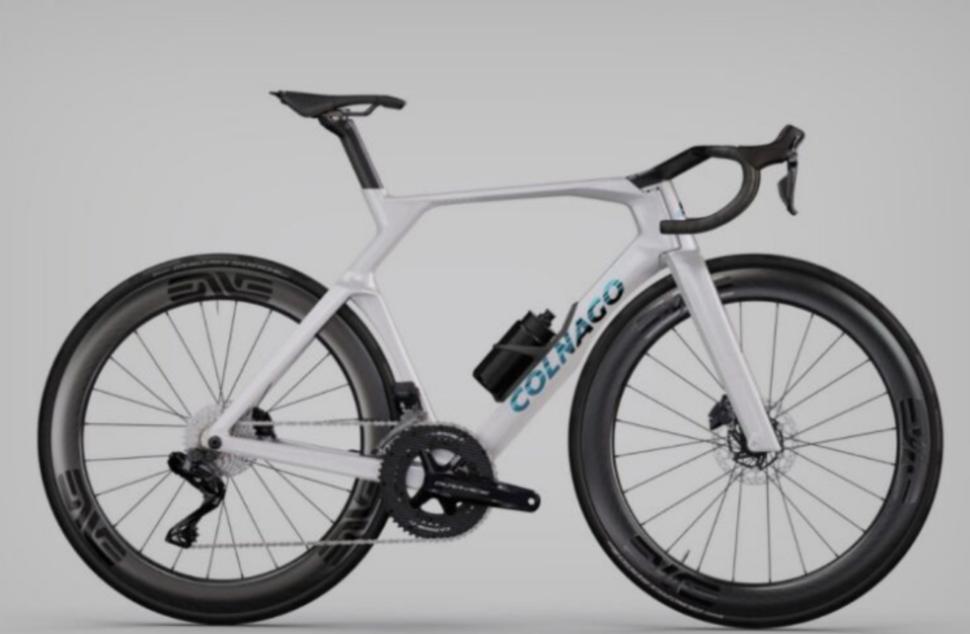
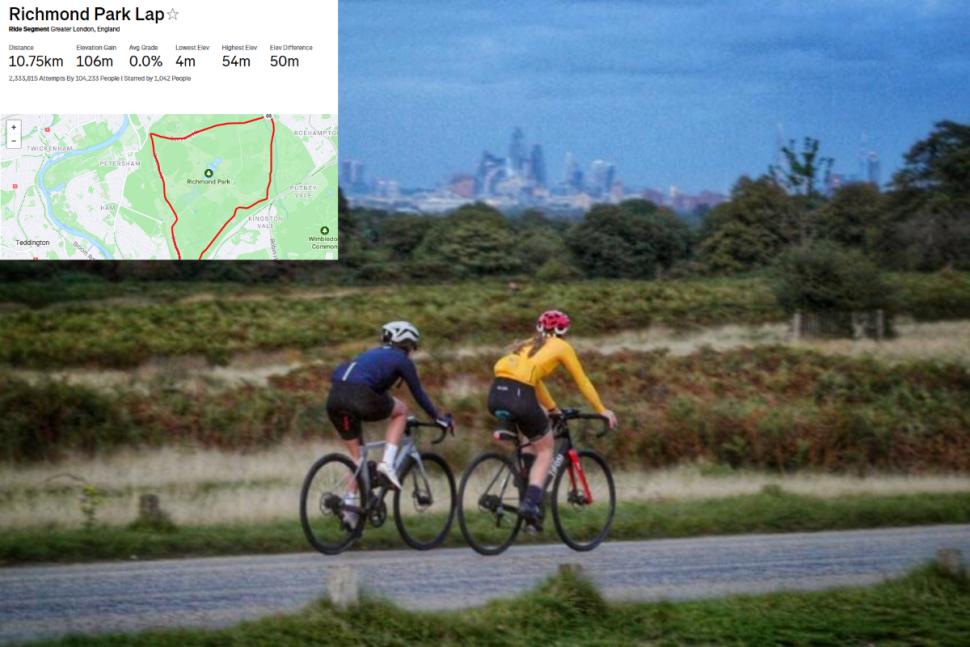
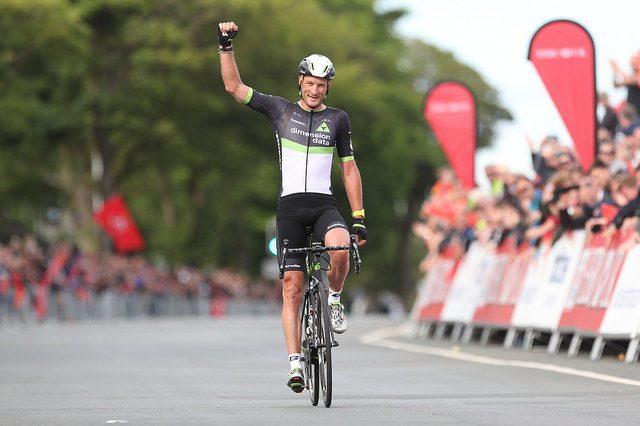
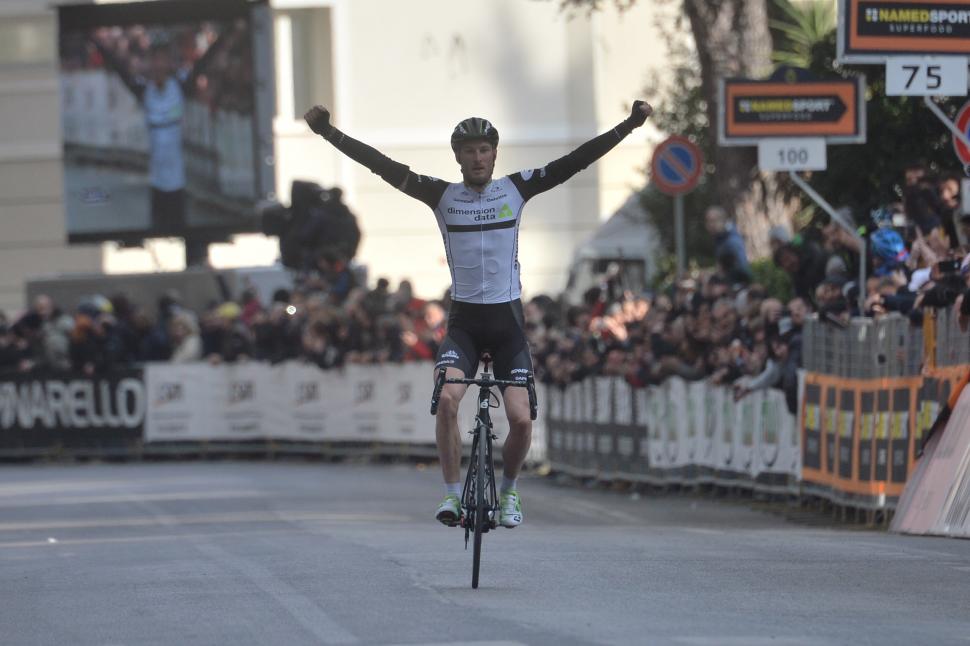


Add new comment
37 comments
Well, gosh: I trust that Andy always moves his coach, car, or motorcycle over to the kerb and parks up, when a faster moving motor vehicle approaches him from behind?
I think he needs to reread the highway code…
Nobody is all good or all bad. In terms of Armstrong, my problem with him has always been more how he treated other riders than the fact he took drugs, given most of the peleton were at the time. But in other ways, I'm not surprised that Wiggins has said he is a good man: I have spoken with Geoff Thomas about the support Armstrong gave him when he was going through cancer.
Not just other riders either, journalists who dared to question him, support staff and others. What I found particularly despicable (and I recognise there may be some bitterness in this because for quite a while I was one of those who believed in him and thought that the rumours were just continental jealousy about the brash American coming and winning their big races) was the playing of the "I've had cancer so how dare you suggest I would do anything that could damage my health" card against his accusers, that was really cynical.
All these post fame celebs are seeking to establish themselves on the right. Russell brand has loads in common with this nonsense - road tax my ars@
My thoughts and deepest sympathy to the family and friends of Alana.
Re the West Yorkshire debacle I unfortunately got drawn into Dominik's thread with one of the contributors who was consistently doubling down with anyone who interacted with him. Once he started dishing out insults it was pretty obvious that he had lost the discussion. It was literally a thread of cycling bingo. It was the usual fixation on lack of lights etc. The main theme was that cyclists caused all congestion and no one could accept that it was motorised vehicles that were the issue.
“When cyclists pay road tax they can use the road” What part of ''there is no such thing as road tax don't they unsderstand" Vehicle Excise Duty is NOT road tax. It isn't set aside for road building and maintenance; It all goes into the wider tax receipts. We all pay income tax and council tax.
Phillip Hammond changed all that back in 2018 when he ringfenced receipts from VED in England to roads. This was a follow through from George Osborne's commitment back in 2015.
This is not actually the case, House of Commons briefing paper December 2023: "The original tax that became VED (introduced in 1921) was created to provide funding for road construction and maintenance. This is no longer the case, and VED revenue is not hypothecated for road maintenance."
Hammond did promise in 2018 that VED revenue from 2021/2 onwards would go into a National Road Fund, but the Tories didn't follow through and VED receipts still go into the Consolidated Fund (the "general pot").
https://www.independent.co.uk/news/uk/tories-philip-hammond-rac-governme...
Thanks for the update. I'd never heard about the briefing paper.
Moot anyway because although people have even bandied about numbers comparing "road taxes" (wot motorists pay over "just the bare cost of fuel and car" I guess?) and the "road budget" AFAIK no country actually publishes yearly "this is really what the cost of driving is" estimates. Those would require including at least some of the many "externalities of motoring". Some of which are easier to measure, some a bit "what price..." [wiki] [Review of a study of this from back in 2012].
Grounds for agreement (with a few people...) might be "motoring is something we value and feel delivers benefits BUT we realise that it also comes with high costs and not just to drivers."
Cycling, on the other hand ... (how about the proposition "Cycling infrastructure is cheaper to build than not to build"?)
The salient point is that the tax is all about the vehicle. The principle being the more impact the vehicle has, the bigger the tax. So if someone chooses to clog up the roads with their big stinky SUV that can't even fit within the width and length of a standard parking bay, then they're going to be pay more tax, but even this doesn't scratch the surface of how much money is spent on building and maintaining, and subsidisings roads every year. That enormous amount of money has to come mainly from general taxation.
And if a zero emission car pays no VED, then cyclists should actually get a VED rebate.
Agree with all your points, but I see that zero emission cars (I own one) will start paying VED at the same rate as other cars from April 2025.
https://www.gov.uk/guidance/vehicle-tax-for-electric-and-low-emissions-vehicles
Most of the cyclists I know do pay road tax. They own cars and motorbikes, as well as cycles.
No one pays road tax. See above.
I've just read Armstrong being called 'a good guy', yet more Facebook nonsense calling for cyclists to have road tax zzzzz, police failing to investigate a stolen bike, a murdurous rampage taking the life on an innocent woman, yet the one thing that saddens me the most is the look of that bloody fugly Colnago.
I'm starting to lose all faith.
It's a shame the police can't trawl through responses on social media and cancel the driving licences of those whose postings betray an attitude that shows they're unsuitable to be allowed to drive.
Jeremy Vine makes the list again.
The job of the BBC journalists (and all those from, supposably, respectable news outlets) is to report accurately regardless of how most people talk.
I look forward to the day that all the admins of the BBC's separate regional Facebook pages unblock me for pointing out their use of inaccurate language and pointing them in the direction of the Road Collision Reporting Guidelines.
As if.
Just because it's in their charter and editorial guidelines doesn't mean that they actually have to do it. They've been lying about cycle helmets for over forty years, for instance.
Proof even with Hi-Viz people still don't see you.
https://youtu.be/H9DUuBqlSTg?si=m6wDiy_2WPFtAbiF
.
Another company chasing the 'premium' sector struggling.........Well, call me shocked.
[emphasis added]
This is somewhat disingenuous of the BBC, and an abdication of its responsibility. Rather than reflecting on its editorial style and choosing to update accordingly it is taking a beligerently resistant approach.
It is not a neutral bystander, it is selecting and expressing news in necessarily nuanced terms. It chooses that nuance. Different people use different language. I've never heard Chris Mason saying, "I 'arxed' the Prime Minister...", yet some ordinary people might.
While it may reflect what some people say, it doesn't have to do so inaccurately or in what we can see to be a misleading style.
Boo Beeb!
And if you ever watch Newswatch on the BBC News channel BBC seniors never apologise or even hint that they might have made a mistake in their reporting.
Newswash
It's easy to carelessly remove the driver from the picture and blame the vehicle.
Even road.cc have done it in their photo caption at the top of this page.
https://www.bbc.co.uk/news/articles/c80l8nndl51o
"give out advice" - is this like the Frankie Boyle(?) joke? "Yes, there is a vegetarian option: f*** off!"
So "for safety, don't ride at night without lights. Sorry, I mean don't ride at night. Actually, don't ride."
Sorry, I mean don't ride at night
They've already done that! It was some 'South Wales Road Safety Partnership' or some equally rubbishy body, after Northumbria (I think) police started the ball rolling with 'Don't ride at busy periods'. I think they got in before British Cycling crowned the 'restrict cycling' movement with 'don't ride during Royal funerals- but drive as much as you like and park where you like'
Pages